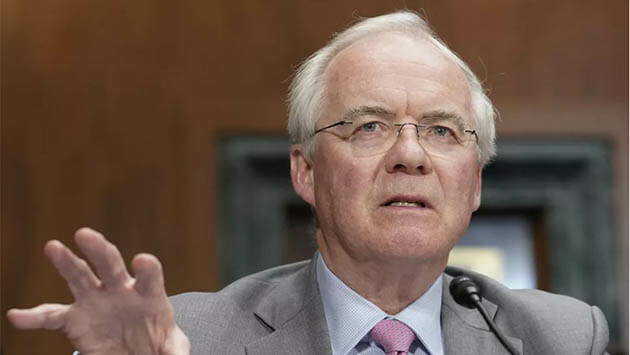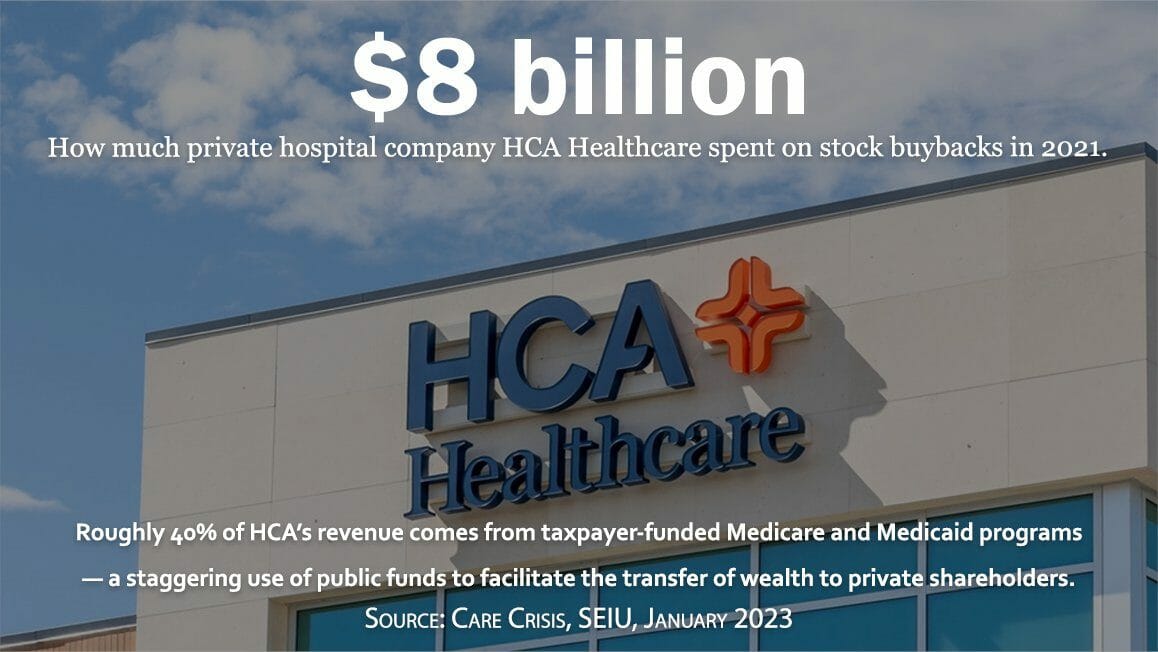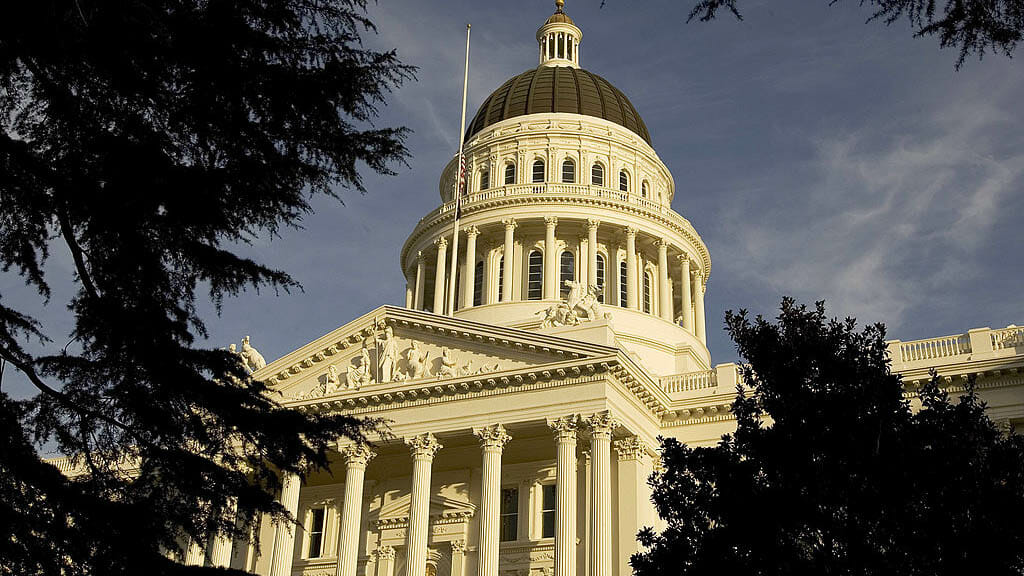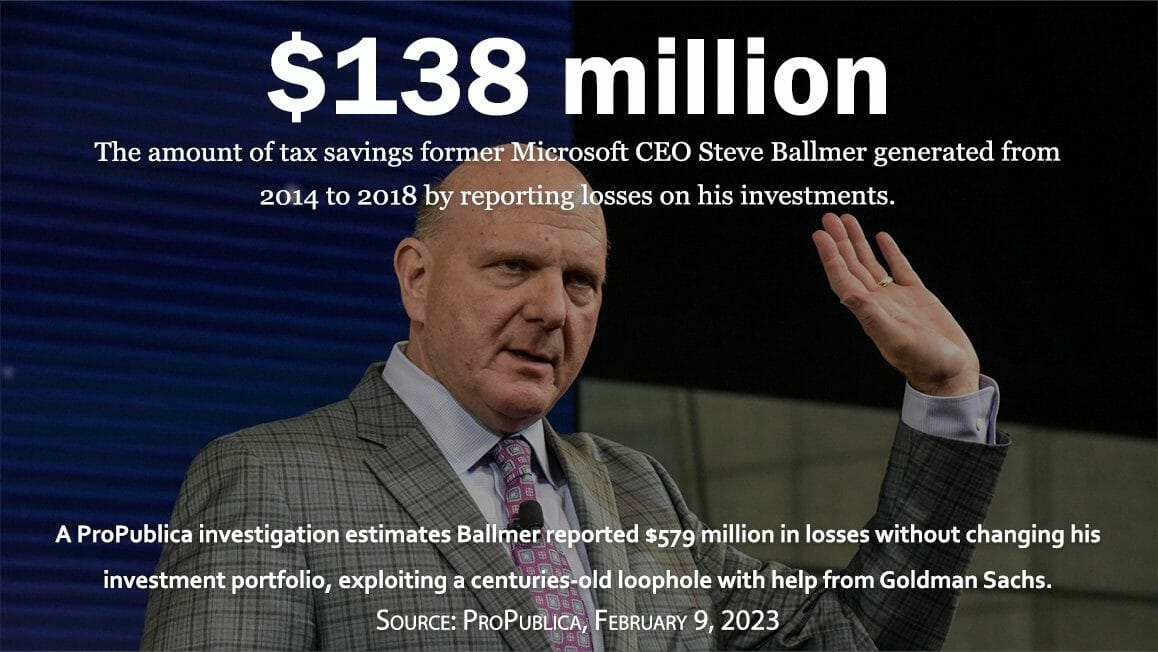| THIS WEEK |
The Philadelphia Eagles may have lost the Super Bowl last night, but billionaires always win. Especially billionaire owners of sports teams.
As our inequality team at the Institute for Policy Studies documented in 2021, the collective wealth of sports barons jumped by $98.5 billion over the course of Covid’s first year. The owners of our new football champs, the Kansas City Chiefs, descend from billionaire oil tycoon H.L. Hunt.
In his third State of the Union last week, President Biden put taxing billionaires right at center stage. He reaffirmed his commitment to a novel billionaire minimum income tax. He called for quadrupling the tax on stock buybacks, the sleight-of-hand that inflates CEO take-homes. Urged the president: “Let’s finish the job. Reward work, not just wealth.”
In the spirit of rewarding work, let's remember that today’s date, 2/13, just happens to equal the current $2.13 sub-minimum wage for tipped workers. This sub-minimum, a shameful relic of slavery, has now been stuck at that level for 32 years!
On Valentine’s Day tomorrow, many of us will likely be dining out in states where restaurants still pay workers that abysmal $2.13. Do we need any more incentive to fight for a world where all workers earn a fair wage and all wealthy pay their fair share?
Chuck Collins and Rebekah Entralgo,
for the Institute for Policy Studies Inequality.org team |
|
| |
|
| INEQUALITY BY THE NUMBERS |
 |
|
|
|
| |
|
| FACES ON THE FRONTLINES |
 |
| Home Care Workers and Clients Rally for Fair Pay |
Last year, advocates successfully won a $3-an-hour wage increase for New York state’s embattled home care workers. But a majority of the caregivers, who are mostly women and women of color, still rely on public assistance. Is it any wonder, then, we have a worker “shortage” in a sector that pays less than Walmart?
The Fair Pay for Home Care Act could fix that problem, by indexing hourly pay to 150 percent of the minimum wage. But Governor Hochul is now proposing to tether home care worker pay to the minimum wage once it reaches $18.
That’s unacceptable, argued the Caring Majority campaign, 1199SEIU members, and other fair pay advocates in Albany last week. Among them: Sage Jobsis, a home care client who’s struggled to find affordable quality care after being diagnosed with multiple sclerosis.
“You can follow the money and see who the state cares about,” says Jobsis. “It doesn’t really care about people with disabilities, the elderly, or home care workers.”
Dozens of lawmakers are hoping to change that impression. They’ve pledged to fight for Fair Pay for Home Care in New York’s next budget. Inequality.org’s Bella DeVaan covered that action in Albany last week. Check out her story below.
|
|
| |
|
| WORDS OF WISDOM |
 |
|
|
|
| |
|
PETULANT PLUTOCRAT
OF THE WEEK |
 |
| Part-Time Labor Keeps This CEO Full-Timer Flush |
| What could possibly be worse than working for low pay? How about working for no pay — like workers inside Kroger supermarkets, the nation’s largest foodstore empire? Kroger last year rolled out a glitchy new payroll system that’s left thousands of workers missing paychecks, some for weeks at a time. And most Kroger workers, unlike Kroger CEO Rodney McMullen, can’t afford to miss any paychecks. Since 1990, the Economic Roundtable reports, real wages for top-paid Kroger clerks in Southern California have dropped 22 percent. McMullen’s pay, by contrast, has nearly doubled since he became Kroger chief nine years ago. McMullen last year pulled down $18.2 million, 679 times his typical worker pay. A generation ago, full-time jobs at Kroger offered a fast-track into America’s middle class. But most Kroger workers today have part-time schedules that change each week, “a strategy,” a New York Times analysis notes, “employers use to encourage turnover and reduce costs.” |
|
| |
|
| BOLD SOLUTIONS |
 |
| We’re Paying Taxes at Higher Rates Than Our Rich! |
“Pass my proposal for a billionaire minimum tax,” President Biden proclaimed in his State of the Union last week. “Because no billionaire should pay a lower tax rate than a school teacher or a firefighter.”
Biden’s right — and his call for a new “billionaire minimum income tax” would fix that. Under the tax, billionaires would pay a tax rate of at least 20 percent on their full income, including unrealized appreciation. White House officials estimate the proposed Biden tax would reduce the federal budget deficit by about $360 billion over the next decade.
The odds this tax passes the Republican-controlled House of Representatives could hardly be slimmer, but states across the country are considering their own wealth taxes to reduce inequality. Inequality.org managing editor Rebekah Entralgo has more. |
|
| |
|
| GREED AT A GLANCE |
 |
|
|
|
| |
|
| TOO MUCH |
 |
| Can Our Labs of Democracy Once Again Deliver? |
| The tax-the-rich story at the federal level doesn’t figure to change anytime soon, certainly not with Republicans running the House of Representatives. Our current federal tax rates on high incomes now appear frozen in place, at least into 2025. And that reality has now shoved the tax-the-rich debate down to the state level where progressive lawmakers have introduced a variety of fresh takes on taxing our richest. Could states be soon breaking new ground on taxing not just income but wealth? Inequality.org’s Sam Pizzigati has more. |
|
| |
|
| MUST READS |
|
What's on Inequality.org
James V. Catano, Thanks to Bezos, Musk, and Putin, ‘Gaslighting’ and ‘Oligarchy’ Rank as Top Words of the Year. The childish media antics of American billionaires paper over the real threat of wealth concentration to working people in Ukraine and the world over.
Tom Conway, Social Security Benefits Are Not a Gift, but a Sacred Contract with Working People. Corporate politicians are considering cuts to essential programs like Social Security while our ultra-rich continue to exploit dodgy tax loopholes for their own personal gain.
Elsewhere on the Web
Liz Theoharis, A World Fragmented by Inequality, Foreign Policy in Focus. The best way of tackling global inequality: tax the rich.
Bella DeVaan, I Love America’s Generous Spirit. Here’s How to Protect It, DC Journal. The universal right to a fair, dignified life — quality health care, housing, education, and opportunity — shouldn’t depend on voluntary generosity. It should be a public guarantee.
Paul Kiel and Jeff Ernsthausen, How the Wealthy Save Billions in Taxes by Skirting a Century-Old Law, Pro Publica. Goldman Sachs and other Wall Street giants have helped billionaires realize huge tax savings by selling stocks for a loss and then replacing them with nearly identical investments.
Daniel Bessner, The Dangerous Decline of the Historical Profession, New York Times. Why the wealthy, those able to work without pay, may well become the backbone of the historical profession.
Carsie Blanton, When My Song “Rich People” Went Viral, It Didn’t Make Me Rich, The Nation. The economics of the music industry don’t work for working musicians.
Sarah McKinley and Isaiah Poole, How State and Local Leaders Can Address America’s Wealth Gap, Route 50. Community wealth building focuses on giving people greater control of the economic activities that affect their daily lives through shared ownership of economic assets.
Richard Barringer, America is foundering as we tolerate growing inequality, Bangor Daily News. Had the more equitable income distribution of the three decades following WW II held, incomes of Americans earning below the 90th percentile would have been $2.5 trillion higher in 2018 alone, enough to pay every working American in the bottom 90 percent an additional $1,144 a month.
Jeff Cain, End the Charitable Tax Exemption and Remove the Conflict of Interest Baked Into Big Philanthropy, Chronicle of Philanthropy. That conflict of interest: The nonprofits philanthropies fund may use their tax-exempt dollars to advocate and lobby in support of tax-exempt charitable laws that, in turn, benefit the nonprofits’ major donors.
Timothy Noah, Luxury Spending by Trust-Fund Brats Could Make a Recession Worse, New Republic.
Luxury spending rose in 2022 by roughly the same 20 percent that the stock market fell.
Tracy Alloway, A New Fed Working Paper Argues That Higher Interest Rates Are Actually Increasing the Wealth Gap, Bloomberg. Making mortgages more expensive cuts off a big avenue for building wealth.
|
|
| |
|
| A FINAL FIGURE |
 |
|
|
|
| |
|
| BE THE 1% (NO, NOT THAT 1%) |
 |
Our goal for 2023: that 1% of our Inequality.org subscribers become monthly sustainers and help grow our newsletter and research efforts. Be the 1%, for as little as $3 a month! |
|
|
|
| |
|
|